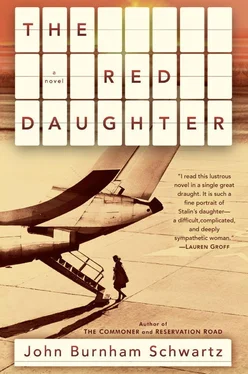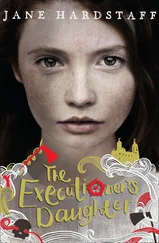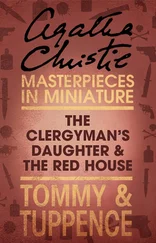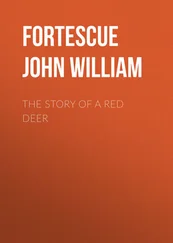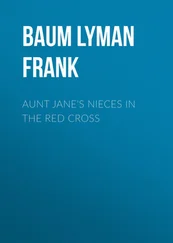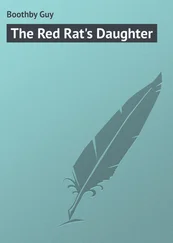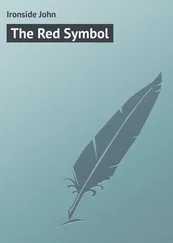Paper boat in an ocean.
At least I’m not your lawyer anymore. (The one letter of yours that reached me, thanks.) So we don’t have to argue about that.
The meter’s no longer running. There’s no “conflict of interest.” No bills to send or pay. Not Wardlow, not Jenks: just Horvath.
I’m in my office now, the door closed.
I don’t think this feeling is ever going away. I’m tired of trying to understand it.
Write me sometime, will you? Or call. Tell me what to do.
Love, Peter
It was Vera Dubov, the translator of Svetlana’s journals, who, twenty-nine years after it was written, delivered this letter back to me. She was perhaps six months into her challenging translation task, so at the time we were rarely in contact; she was doing her work and I was doing mine (though in fact, being retired, I had nothing special to do). It must have been after 5:00 that day, because I was fixing myself a martini when my doorbell rang.
“Professor Dubov,” I said, surprised. “Did we have an appointment?”
She shook her head, clearly uncomfortable. “I’m sorry, Mr. Horvath. I should have called first.”
“What can I do for you?”
“I have found something I think may belong to you.”
Reaching into her shoulder bag, she produced a letter, sans envelope. I immediately recognized the old Wardlow Jenks stationery: bone-white weave, Tiffany watermark, and—visible in reverse through the backside of the folded single sheet—the firm’s name in the fourteen-point Garamond type that Lucas Wardlow always preferred.
“Where did you get that?”
My voice sharper than intended; I saw color rise in Slavic cheeks. The hair at Vera Dubov’s temples lately starting to gray, I noticed. Six months living inside Svetlana’s head could do that to you.
“It was stuck between the pages of one of her journals,” she said. “Like this, no envelope.”
I took the letter from her hand, but didn’t bother unfolding it.
“You’re not going to look at it?” Whatever melodrama she’d been expecting, she couldn’t hide her disappointment.
“Not necessary, thanks. I know what it is.”
“Mr. Horvath, I want you to know that I stopped reading the instant I realized you might be the author. That the letter was… intimate.”
I let the depiction hang. From where I was standing I had a clear view past my visitor to the dogwood tree in my yard: late fall, branches shorn of decoration. Stab of grief so sharp behind my eyes I had to bite down on the inside of my lip to keep back the tears.
“Mr. Horvath, are you okay?”
“It was a long time ago,” I managed to say.
The Russia scholar looked me straight in the eye then. How much more interesting I was to her now than I’d been before she’d found the letter. Before she’d read the letter; I was sure she’d read the entire thing. I know I certainly would have, had I been in her place.
“Have a good night, Miss Dubov,” I said, before she could say anything more. “And thank you.”
7 January
Most days are not to be remembered. Believed, yes, but not remembered.
Then there are days like today. Days like unicorns, not to be believed with one’s own eyes. Days of radical incredulity. Days that could not have happened. And so it is as though they never happened.
These are the days one never forgets.
—
A pot of my barley soup simmering on the stove. A cooking glove—no, oven mitt— on one hand as I bend to take a tray of heat-and-serve rolls out of the oven. Yasha still home for Christmas holiday, now upstairs dilly-dallying (his new most popular word other than shit cock fuck ), and these are his favorite rolls, served with loads of English butter. The phone rings, but I’m not expecting anything—the day thus far I mean, while perfectly nice, has been of the credible and forgettable kind, and so I finish removing the rolls from the oven and even give the soup a couple of stirs with my long wooden spoon before walking over to the phone table and answering.
Hello, yes?
Mother?
In his grown man’s Russian the word is still a sound before it is a word. The way my boy was once a spirit in my womb before ever he was a boy.
Mother, it’s me.
Josef…? In my breast, my own heart is eating me alive.
Mother, I’m writing a paper for a medical journal and there’s a study I can’t get hold of because it was done in England. Cambridge University. It would be very helpful for what I’m writing—for my position, you understand? Do you think you might be able to find a copy and send it to me?
His tone astonishingly routine, as if we’d been speaking just the other week, rather than the other decade. As if we’d been in the middle of some pleasant conversation only he remembered.
All right, I… Some kind of medical study, you say?
Yes. Thanks, Mother. Do you have a pen? I’ll give you the details.
—
I wrote them down. Good thing, because only a few hours later I can’t remember any distinct fact about his urgent paper. On the liver? The kidney? The heart? What I remember is the sound of my son’s Russian voice speaking to me as a son would speak to his mother—just that. And then, once the call was over, breaking out in sobs there in the kitchen, with my oven mitt still on.
Because of a set of instructions.
No. Because he is still my son.
11 January
Somehow Yasha’s idea of Christmas break does not include hours spent deep in the intestines of Cambridge University Library, haranguing one librarian’s assistant after another until finally, just in time for tea, the obscure yet much-desired study of some kind of plaque-eating microbe comes wheeling toward us on a cart. A drab little thing, after all that. Then a long line for the copy machine before we can escape to open air. By now the post office is closed; Josef’s mailing instructions, in any case, are too complicated for me to maneuver in a single day. As recompense for his frustration, I take Yasha to a tea shop for a cuppa and a splurge on clotted cream and thrice-baked scones. I don’t tell him—not today, anyway—how low the money is running, even with his scholarship.
Of course, he has questions about these siblings he’s never met and practically never heard about. And fortunately I have a bit more to tell him. For yesterday a letter from Josef arrived in my postbox—for it to follow so quick on the heels of his phone call, I assume but would never risk saying aloud, he must have received official sanction to reopen contact with me—in which he preemptively offered answers to certain basic wonderings I had not yet had occasion to share with him myself. My grandson, Ilya, for example, whose existence until now I’ve heard about only from my stargazing Princeton neighbor Roman Smoluchowski, is today thirteen and living, it concerns me to learn, not with Josef and his new wife, Lyuda (whoever she is), but rather with his ex-wife, Elena (whoever she was).
And speaking of depressing news, Josef wrote that he would tell me what he could about our beloved Katya, though this would not amount to very much, for he regretted to say that he and his sister were no longer in touch. Some time ago, her work as a geophysicist had taken her to some rancid Siberian outpost called Kamchatka. He did not know what she did there exactly, but he thought it had something to do with volcanic gases. How reassuring. Katya is married and has a daughter, my granddaughter, whose name Josef did not supply perhaps because he does not know, or does not care to know, the name of his only niece.
Читать дальше
